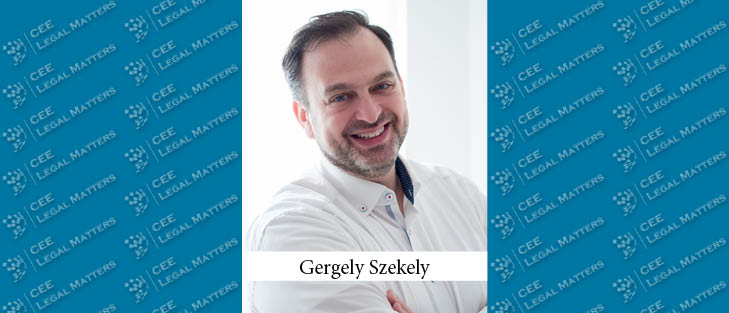Heureka Group CEE Head of Legal Gergely Szekely provides insights on his in-house legal team’s budget trends and management, considering the challenges inherent in the dynamic e-commerce sector.
CEELM: Overall, has your in-house legal team’s budget tended to increase, decrease, or remain relatively stable over the past few years?
Szekely: First of all, I serve as the Head of Legal at Heureka Group CEE, overseeing legal matters for Compari, Arukereso, and Pazaruvaj – our businesses in Romania, Hungary, and Bulgaria, respectively. Heureka Group is a regional market-leader e-commerce business service provider, with our main operations based in the Czech Republic and Slovakia and having business operations in Slovenia and other countries in the Adriatic region – Croatia, Bosnia and Herzegovina, and Serbia – as well as in the CEE region – Hungary, Romania, and Bulgaria.
The budget has been stable – we manage it very conservatively and avoid increasing costs. However, the e-commerce sector presents many challenges, which means timely budget considerations are essential. As a member of the unified legal team, in charge of Heureka Group business activity in Romania, Bulgaria, and Hungary, I work closely with the Group’s General Counsel to select and discuss projects within our overall budget. It’s quite challenging to justify the budget and plan for upcoming legal projects throughout the year.
Many projects are controlled in the Czech Republic by the group, while locally we rather handle ongoing operational legal issues and coordinate with external partners. Our annual budget is generally fixed, with only occasional increases, and there hasn’t been much change in recent years.
CEELM: If budget cuts become necessary, what are typically the first areas of expense you consider reducing?
Szekely: Actually, we aim to maintain our budget rather than trim it. We strive to handle everything in-house to control fixed legal costs effectively. External services are only used for very specialized or local needs. When we do use external help, we negotiate hourly rates and often ask for fixed fees or caps. Setting these caps can be tricky and sometimes involves tough negotiations.
We also sometimes shift certain operational legal costs to HR, especially for labor law matters or issues generated by HR. Our corporate structure supports internal budget adjustments throughout the year, and HR costs are generally more flexible in our organization.
CEELM: What have been your team’s most successful cost-cutting initiatives in past years?
Szekely: Not only have we been successful in managing our legal operations, but we also achieve this consistently every year. Currently, we have a well-established legal pool, which includes several attorneys based in Romania. We are also aiming to establish a similar legal pool in Bulgaria. This strategic distribution of projects allows us to manage and reduce legal costs efficiently.
Within this pool, we foster a competitive environment by including two or three law firms and consistently requesting project fees and competitive quotations from all members. This approach isn’t about merely cutting legal expenses. Rather, our primary goal is to maintain control over expenses while ensuring high-quality legal services. By encouraging competition within our pool, I believe we can achieve better cost management and optimized legal solutions.
CEELM: What have been the costs that increased the most for your legal team in recent years?
Szekely: Certainly, one of our main expenses is people, and unfortunately, due to cost-cutting measures, we’re unable to expand our team. We need to justify the necessity of new hires strictly, so instead, we focus on managing and controlling external resources while handling as much internally as possible. The primary budget cuts have affected our ability to hire additional staff, which we need.
In reality, in the e-commerce sector, where legal challenges and considerations are constantly evolving, it’s difficult to reduce legal costs. External consultants are necessary, and there are also administrative and notary fees that we can’t cut. Certain expenses are unavoidable because they are essential to our operations.
CEELM: You touched upon budget considerations while working with the external counsel. How do you avoid the loss of trust scenarios when the initial budget is exceeded?
Szekely: Working with external consultants can be quite interesting. Initially, there can be a misalignment over budget expectations, especially when negotiating capped fees, which they sometimes resist. However, the key point is that in e-commerce, success often relies on passion and enthusiasm. When you and your external partners share this passion, it helps in managing the budget more effectively. Even though external lawyers may not always share the same level of enthusiasm, finding common ground in your passion for the work can make budget management smoother.
There are times when we realize that a capped fee with an external consultant hasn’t fully covered the scope of work. In such cases, our corporate approach often points to external factors as the cause. We strive to build trust and acknowledge when a consultant has exceeded expectations. In a particular case, our external legal consultant reached their cap and delivered excellent service, so we offered an additional budget or a small bonus as a token of appreciation. Although it was a modest amount, it reflected our commitment to treating our external partners well.














